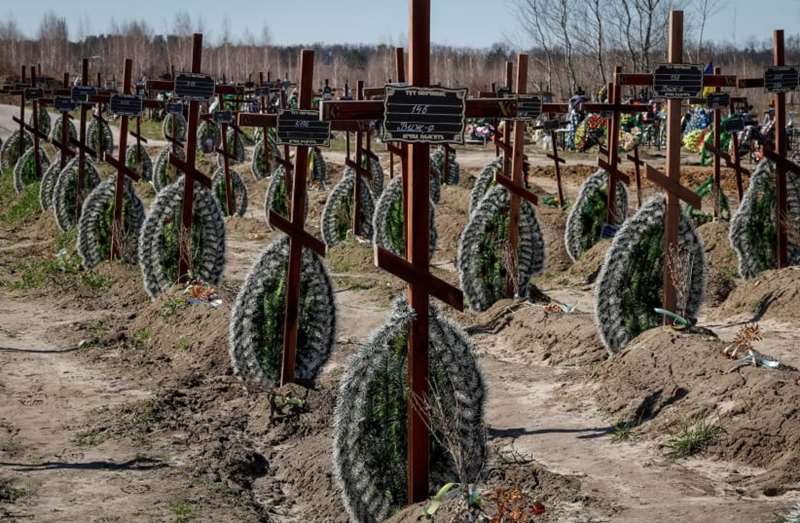50,000 Russian soldiers killed in Ukraine war

The Human Toll of Russia's "Meat Grinder" Strategy in Ukraine
The conflict in Ukraine continues to exact a devastating toll on Russian soldiers, with the death toll surpassing 50,000 according to recent BBC findings. As Moscow persists in its aggressive "meat grinder" strategy, waves of soldiers are relentlessly pushed forward, resulting in staggering casualties. This report delves into the harrowing reality of the conflict, shedding light on the changing tactics, recruitment methods, and the profound impact on soldiers and their families.
The Grim Statistics
Over the past twelve months, the death toll among Russian soldiers has risen by nearly 25%, underscoring the relentless nature of the conflict. The BBC, in collaboration with Mediazona and volunteers, meticulously tracked fatalities, revealing a human cost that far exceeds official acknowledgments. The term "meat grinder" aptly describes Moscow's strategy of wearing down Ukrainian forces through relentless frontal assaults, resulting in immense casualties and minimal gains.
Changing Front-Line Dynamics
Analysis of the conflict highlights significant spikes in casualties during key offensives, such as the battles for Vuhledar, Bakhmut, and Avdiivka. The involvement of mercenary groups like Wagner further intensifies the brutality of the conflict, with leader Yevgeny Prigozhin estimating significant losses. The capture of strategic locations amplifies the human cost, with new military graves across Russia serving as a somber reminder of the toll of war.
Recruitment and Deployment Tactics
The report delves into the composition of Russia's fighting forces, revealing a disturbing reliance on inexperienced recruits, including volunteers, civilians, and prisoners. The recruitment of prisoners, initially by private entities like Wagner and later by the Russian defense ministry, highlights the desperate measures taken to sustain the conflict effort. However, the training and treatment of these recruits raise serious questions about military preparedness and ethical considerations.
Human Stories Behind the Numbers
Heartbreaking accounts from families of fallen soldiers underscore the personal tragedies of the conflict. Widows and mothers recount the shock of learning their loved ones were deployed to the front lines, often without adequate training or preparation. The stories of Alfiya, who lost both her son and husband to the war, and others serve as poignant reminders of the human cost of conflict and the profound grief experienced by those left behind.
Challenges and Consequences
Reports of soldiers lacking proper equipment and support highlight systemic challenges within the Russian military. Instances of soldiers being sent into battle with inadequate gear raise concerns about leadership, accountability, and the treatment of enlisted personnel. The grim reality faced by soldiers on the front lines underscores the urgent need for ethical conduct and proper care for those serving in the armed forces.
Conclusion
The staggering death toll among Russian soldiers in Ukraine underscores the grim reality of war and the profound human cost of conflict. As the conflict continues, it is imperative to recognize the sacrifices made by soldiers and their families, while also advocating for accountability, transparency, and ethical conduct in warfare. The stories of those affected serve as a sobering reminder of the enduring impact of war on individuals and communities.
Acknowledgments
The report acknowledges the efforts of the BBC, Mediazona, and volunteers in documenting the human toll of the conflict in Ukraine. Additionally, it pays tribute to the soldiers who have made the ultimate sacrifice and the families who continue to endure the consequences of war.










পাঠকের মন্তব্য